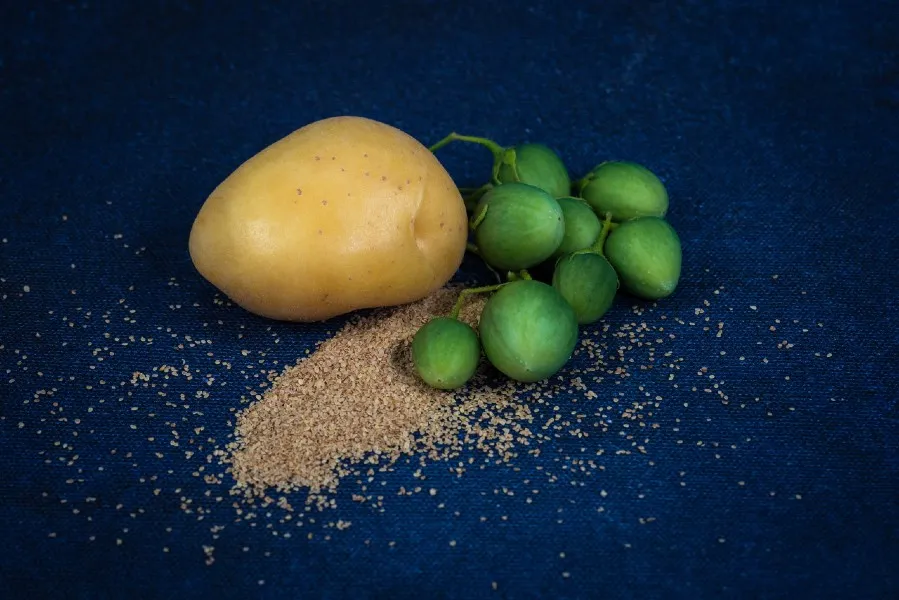Revolutionary True Potato Seeds Offer Hope for African Farmers Facing Climate and Disease Pressures
In a major stride toward sustainable agriculture and food security, Dutch biotech firm Solynta has secured €20 million in venture debt financing from the European Investment Bank (EIB) to fast-track the development of highly disease-resistant and climate-resilient potato varieties.
The funding, supported under the European Commission’s InvestEU programme, will enable Solynta to expand its innovative work with True Potato Seeds (TPS)—a game-changing alternative to traditional tuber planting.
“Climate action and innovation go hand-in-hand,” said EIB Vice-President Gelsomina Vigliotti. “Potatoes are a global staple. Ensuring they can thrive under tougher conditions is vital for food security.”
True Seeds, True Potential
Unlike bulky tubers, True Potato Seeds are lightweight, durable, and non-perishable, making them ideal for long-distance transport and long-term storage. For farmers across Africa, where poor infrastructure, post-harvest losses, and limited access to disease-free planting material are ongoing challenges, TPS could dramatically improve planting efficiency and yield reliability.
Solynta’s non-GMO hybrid breeding technology allows for the rapid development of varieties with built-in resistance to key threats like late blight—a devastating fungal disease—and improved tolerance to climate stress. The varieties also require less chemical input, reducing environmental impact and lowering production costs.
“Growers worldwide need access to clean, robust seed that performs under pressure,” said Solynta CEO Peter Poortinga. “Our varieties help farmers reduce dependence on crop protection chemicals, while producing more consistent yields—especially critical in vulnerable regions.”
Boosting Resilience and Food Security
Potatoes are the world’s third most important food crop after rice and wheat. In many parts of Africa, demand for potatoes is rising fast—but local production often lags due to poor planting material, high disease pressure, and fragmented value chains.
Solynta’s breakthrough technology supports several UN Sustainable Development Goals (SDGs), including ending hunger, reducing poverty, and promoting sustainable production.
“The EU sees this as a smart, long-term investment in agricultural resilience,” said Klasja van de Ridder, European Commission representative in the Netherlands. “Climate change threatens yields globally. Innovations like Solynta’s true potato seeds are part of the solution.”
What It Means for Africa
For African policymakers, seed companies, and farming cooperatives, the potential adoption of Solynta’s hybrid TPS technology could:
-
Reduce dependence on imported tubers
-
Lower input costs through disease resistance
-
Improve smallholder access to high-quality planting material
-
Strengthen food systems under climate stress
With the EIB and European Commission backing this next-gen technology, the path is being cleared for stronger public-private partnerships to scale innovation across Africa’s potato-producing regions.


